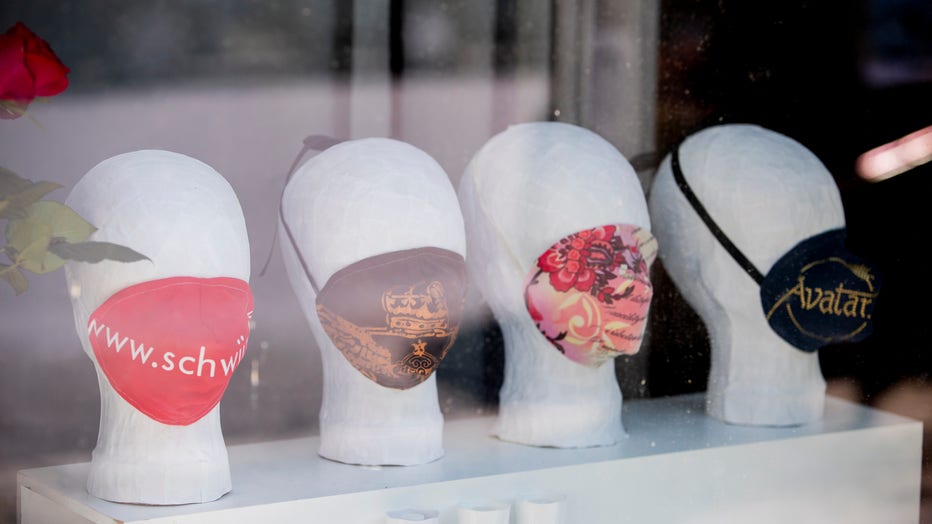If you’re going to make your own face mask, the material matters, researchers say
LOS ANGELES - Thousands of individuals and organizations have answered the call to produce homemade masks amid serious shortages of medical supplies during the COVID-19 pandemic, but researchers say that while masks are important in fighting the spread of the disease, the material used to make them matters.
Researchers at the Wake Forest Baptist Medical Center evaluated approximately 400 masks made by community volunteers in order to find which, if any, masks worked as well as N95 respirators or any other medical-grade surgical masks.
RELATED: Etsy calls on sellers to make face masks amid COVID-19 shortages
“We saw the possibility that we could face a shortage of surgical masks in the hospital and wanted to investigate the possibility of using cloth masks as an alternative as long as they worked and provided good protection for our doctors, nurses and patients,” said Scott Segal, M.D., chair of anesthesiology at Wake Forest Baptist, who conceived of the idea.

FILE - Fabric masks are exhibited in the shop window of a textile artist's shop. (Photo by Christoph Soeder/picture alliance via Getty Images)
After careful analysis of each mask, researchers found that the best homemade masks achieved 79 percent filtration, compared to N95 masks which achieve 97 percent.
RELATED: CoronavirusNOW.com, FOX launches national hub for COVID-19 news and updates
But some homemade masks demonstrated as little as 1 percent filtration, according to researchers.
According to researchers, the best design was that of a double-layer mask made of heavyweight “quilter’s cotton,” consisting of a thread count of 180 or more.
Segal said a double-layer mask with a simple cotton outer layer and inner layer of flannel also performed well.
RELATED: Desperate hunt for medical gear to fight COVID-19 becomes all-consuming
The inferior masks consisted of single-layer or double-layer designs made of lightweight cotton.
“As important as this information is for hospitals, it is also important for people who want to make masks for their own use,” Segal said. “We don’t want people to think that just any piece of cloth is good enough and have a false sense of security.”
While many of the masks created by volunteers were determined to be nearly useless by the researchers, health officials have urged the public that something is better than nothing — and more importantly, social distancing is still the best defense against the spread of the novel coronavirus.
Research on SARS, another coronavirus, found that N95 masks were highly effective at blocking transmission of that virus. Even ill-fitting medical face masks have been found to interrupt airborne particles and viruses, keeping them from reaching as far when someone sneezes.
Another study determined that, while masks made out of cotton T-shirts were far less effective than manufactured surgical masks in preventing wearers from expelling droplets, they did reduce droplets and were better than no protection at all.
The Associated Press contributed to this report.

